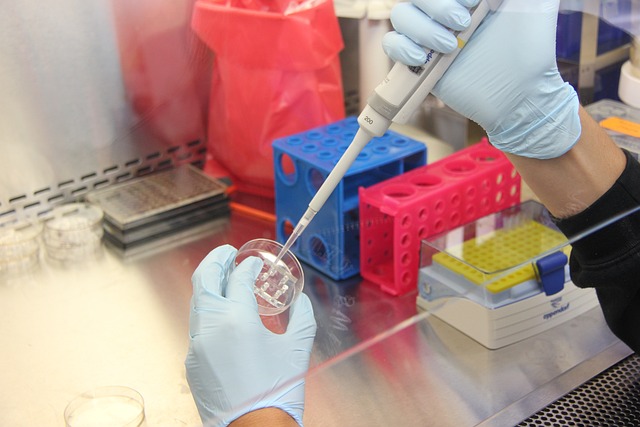Acetone, a colorless, volatile liquid, is one of the most widely used chemicals in both industrial and household settings. Known for its distinctive, sharp odor, acetone is a powerful solvent with a range of applications.
This blog will delve into the question, “What is acetone?” by exploring its chemical properties, production methods, and everyday uses. Understanding acetone is crucial for anyone involved in industries ranging from manufacturing to cosmetics, or even for those who simply want to know more about the products they use daily.
What is Acetone: Chemical Properties
1. Molecular Structure and Formula
Acetone, also known as propanone, has the chemical formula C₃H₆O. It belongs to the ketone family, characterized by a carbonyl group (C=O) bonded to two hydrocarbon groups. In acetone, this group is bonded to two methyl groups (CH₃), making it the simplest and smallest ketone. The molecular structure of acetone is symmetrical, which contributes to its high volatility and effectiveness as a solvent.
2. Physical Properties
Acetone is a colorless liquid at room temperature with a boiling point of 56°C (133°F) and a melting point of -95°C (-139°F). It is highly volatile, meaning it evaporates quickly when exposed to air. This property is particularly useful in applications requiring fast drying times, such as nail polish removers and paint thinners. Acetone is miscible with water, alcohol, and most organic solvents, enhancing its versatility in various chemical processes.
3. Reactivity and Safety Considerations
Acetone is a relatively stable compound, but it is highly flammable with a flashpoint of -20°C (-4°F). When using acetone liquid in industrial or household settings, it is crucial to handle it with care to avoid fire hazards. In terms of chemical reactivity, acetone is a good solvent for many organic compounds, including plastics, synthetic fibers, and resins. However, it should not be mixed with strong acids or bases, as this can lead to hazardous reactions.
Production of Acetone
1. Industrial Production Methods
The most common method for producing acetone is the cumene process, which also yields phenol. In this process, cumene (isopropylbenzene) is oxidized to produce cumene hydroperoxide, which is then cleaved to produce acetone and phenol. This method is highly efficient and accounts for the majority of the world’s acetone supply.
Another method is the dry distillation of acetates, a process that involves heating calcium acetate to produce acetone and calcium carbonate. Although less common today, this method was historically significant and is still used in some specialized applications.
2. Biological Production
Acetone can also be produced biologically through fermentation by certain bacteria. This method is less common but is gaining interest as a more sustainable alternative to traditional chemical processes.
The bacteria Clostridium acetobutylicum, for example, can produce acetone as a byproduct of carbohydrate fermentation, a process that was extensively used during World War I for the production of explosives.
Also Read: Misconceptions About Sodium Laureth Ether Sulfate
What is Acetone’s Everyday Uses?
1. Household Uses

Acetone chemical is perhaps best known as a key ingredient in nail polish remover. Its ability to dissolve a wide range of substances makes it highly effective at removing nail polish, glue, and even stains from fabrics. Many people may not realize that they encounter acetone liquid in various cleaning products, where it acts as a solvent to break down grease and oil.
Another common household use of acetone is in the removal of super glue. Its strong solvent properties can dissolve the adhesive bonds formed by cyanoacrylate, the main component of super glue, allowing for easy removal.
2. Industrial Uses
In industry, acetone chemical is a valuable solvent used in the production of plastics, synthetic fibers, and other chemicals. For example, acetone is used in the production of methyl methacrylate, a key monomer in the manufacture of polymethyl methacrylate (PMMA), commonly known as acrylic or plexiglass. Additionally, acetone is used as a solvent in the production of explosives, lacquers, and varnishes.
Acetone is also widely used in the pharmaceutical industry as a solvent for drugs and in the formulation of various medications. Its ability to dissolve many organic compounds makes it indispensable in the synthesis of a wide range of pharmaceutical products.
3. Cosmetic and Personal Care Uses
Beyond nail polish remover, acetone liquid is used in various cosmetic and personal care products. It is found in some skin care products, where it acts as a degreasing agent, helping to cleanse the skin and remove excess oils. In hair care, acetone is sometimes used in formulations designed to remove hair extensions or dissolve hair glue.
Despite its widespread use in cosmetics, it’s important to note that acetone can be drying to the skin and nails. Therefore, products containing acetone are often formulated with moisturizing agents to counteract this effect.
4. Laboratory and Medical Uses

In laboratory settings, acetone chemical is used as a cleaning agent for laboratory equipment and glassware due to its effectiveness in removing organic residues. It is also used as a reagent in chemical synthesis, particularly in the formation of certain ketones and aldehydes.
In the medical field, acetone is sometimes used as a disinfectant, particularly in skin prep before surgery. Its rapid evaporation makes it ideal for use in situations where a quick-drying solvent is needed.
Also Read: What is Cetostearyl Alcohol? Uses & Safety Concerns
What is Acetone’s Environmental Impact?
1. Biodegradability and Volatility
Acetone is considered to be relatively environmentally friendly compared to other solvents. It is biodegradable and does not persist in the environment. When released into the air, acetone breaks down quickly through photochemical reactions with sunlight. In water, it is readily biodegradable, meaning it can be broken down by microorganisms, reducing the risk of environmental contamination.
2. Regulatory Considerations
Despite its relatively low environmental impact, the use of acetone is still regulated due to its flammability and potential health effects. Occupational exposure limits have been established to ensure that workers handling acetone do not suffer from adverse health effects such as respiratory irritation or headaches. Proper storage and handling procedures are required to minimize the risk of fire and exposure.
Safety and Health Considerations
1. Health Risks
While acetone chemical is generally regarded as safe when used correctly, prolonged or excessive exposure can pose health risks. Inhalation of acetone vapors can cause respiratory irritation, dizziness, and headaches.
Skin contact with acetone liquid can lead to dryness and irritation, especially with repeated exposure. It is essential to use acetone in well-ventilated areas and to wear protective gloves when handling it in large quantities.
2. First Aid Measures
In case of skin contact with acetone chemical, it is recommended to wash the affected area with soap and water to remove any residue. If acetone is accidentally ingested, it is crucial to seek medical attention immediately, as it can cause nausea, vomiting, and central nervous system depression. For those who experience eye irritation from acetone exposure, rinsing the eyes with water for several minutes can help alleviate symptoms.
Sourcing Acetone for Your Company
Elchemy.com specializes in helping companies source acetone and other chemicals efficiently and reliably. As a leading chemical procurement platform, Elchemy connects businesses with trusted suppliers, ensuring that they receive high-quality acetone chemicals tailored to their specific needs. Whether you require acetone for manufacturing, pharmaceuticals, or industrial applications, Elchemy streamlines the sourcing process with its extensive network of global suppliers.
One of the key advantages of using Elchemy is its focus on quality and compliance. Our platform meticulously vets suppliers to ensure that all products meet industry standards and regulations. This means companies can trust that the acetone and other chemicals they purchase are safe, reliable, and of the highest quality.
At Elchemy we also offer personalized support, guiding companies through the sourcing process from start to finish. With features like bulk ordering, competitive pricing, and flexible delivery options, our team at Elchemy simplifies procurement, saving businesses time and reducing costs. Additionally, their user-friendly interface allows for easy navigation and quick access to a vast catalog of chemicals.
By choosing Elchemy.com, your company can easily overcome common challenges in chemical sourcing, such as fluctuating prices and supply chain disruptions, and focus on their core business operations with confidence.













